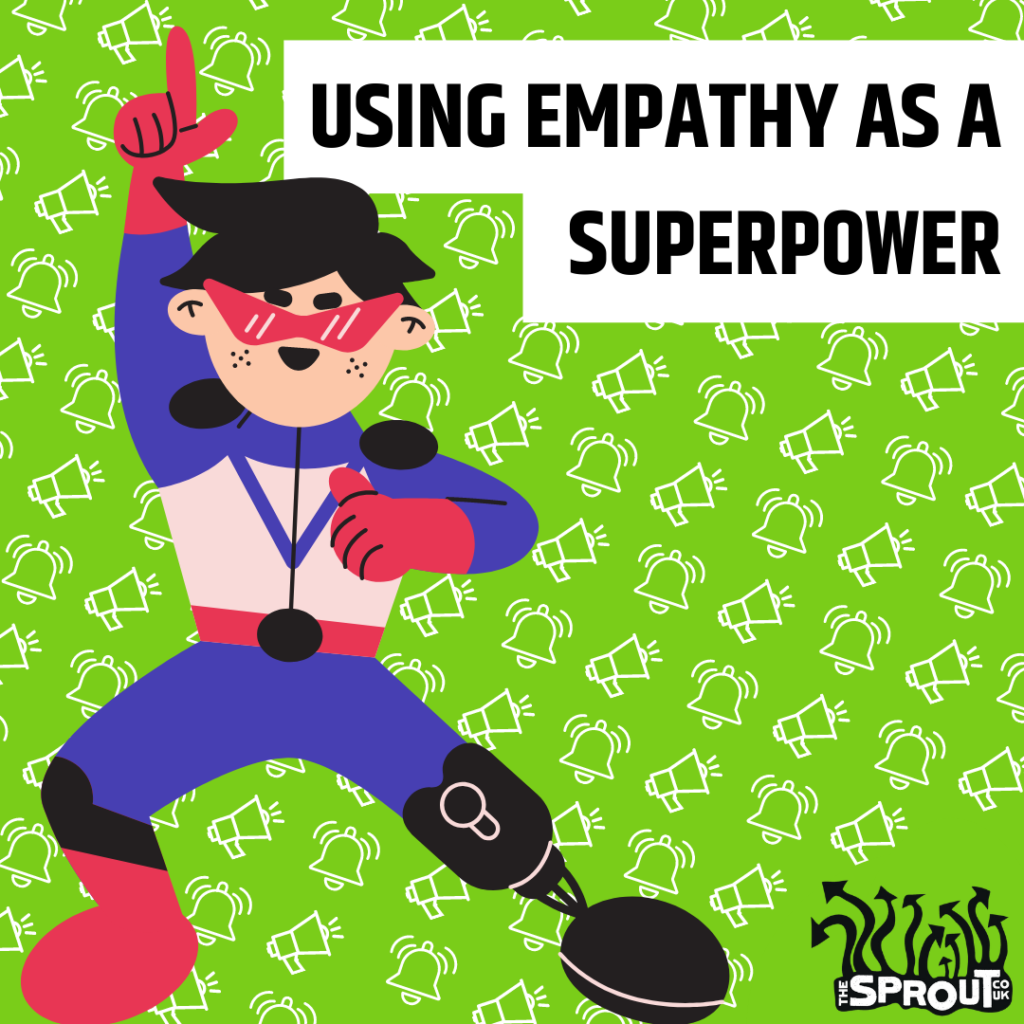Invisibility, telekinesis and teleportation may be your dream superpowers, but what’s the likelihood of you actually harnessing that power? Instead, take a look at what empathy is and how you can make it your real life superpower.
What is empathy?
Empathy and sympathy are often confused.
Sympathy is caring about the well-being of someone and their situation and feeling sorry for them, without personally understanding the struggle that they are going through.
Empathy goes further than this. It is an active attempt to understand another person’s perspective and emotions. It’s often referred to as “putting yourself in someone else’s shoes” to help understand what they’re going through.
How can I be more empathetic?
Being empathetic is a skill that you can learn and practice to help improve your relationships with your friends, family, peers, partners and colleagues. With a little bit of curiosity and kindness, everyone can harness empathy as a superpower.
In situations where you want to be empathetic, you could start by asking yourself:
- What is the person feeling?
- How would I feel if were in that situation?
- Have I ever felt this way?
- What would help me feel better?
- How would I want to be supported in this situation?
Empathy can also come from being observant of others instead of focussing entirely on yourself, and caring about changing in people’s emotions and situations.
Having open conversations with others where you actively listen to each other can also help you to be empathetic. You could take a moment to understand what someone has said and how they’re acting, and respond to this, rather than rushing to reply. Asking follow up questions can help you to understand the other person better. Remember, you don’t need to agree with someone’s opinion in order to understand and respect it, and show the person empathy.
To help yourself and others be more empathetic, you could challenge yourself to open up about your own feelings and experiences. It can help you to feel more connected to others and have a better understanding of empathy.
Related Information
Reading books can help you to explore situations that you and the people around you may not have been in. Being exposed to new scenarios can help you practise putting yourself in someone else’s shoes. Empathy Lab has a list of recommendation books to read to help build empathy.
If you’d like to talk to someone about empathy, you can contact Meic. The Meic helpline is a free and anonymous helpline providing information, advice and advocacy to young people in Wales up to the age of 25. They’re open from 8am – midnight every day and can be contacted by phone (080 880 23456), text (84001), and online chat.

